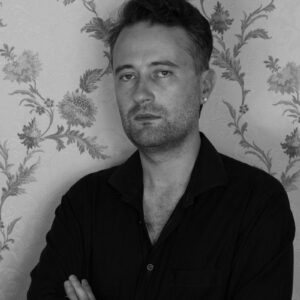In the series of interviews with artists, we talked to Mr Abbas Mohammadi. He graciously agreed to talk with me. What you are reading is an abstract of the conversation that will be published in the near future.
Mr Abbas Mohammadi, Hello.
Thank you for accepting the interview offer.
I am Abbas Mohammadi, born in Afghanistan and raised in Iran. Like many Afghans who immigrated due to the entry of the former Soviet army, I also immigrated. We went to Iran with my family. My childhood was spent in the city of Kashan. After receiving a diploma, I started working in cinema. I started working in cinema at the Iranian Cinema Youth Association after completing filmmaking training courses by experimentally making short films. After making several commissioned films, the professors I had went to Tehran to continue working in cinema and to enter professional cinema. In Tehran, I entered the world of documentaries by taking professional documentary training courses. After making two documentary films that were screened in festivals such as Tehran Short Film, Busan South, UCL, America, and the Cannes Film Market, I participated in the national entrance exam and entered the cinema school. I completed my bachelor’s degree in three and a half years and received a degree in cinema directing. After that, I entered the university without interruption. I moved to Tehran and received a master’s degree in filmmaking from Tehran University’s Faculty of Fine Arts. After that, I returned to Afghanistan and taught at the university. During this time, I have been engaged in filmmaking along with teaching. After the Taliban entered Kabul, I had to emigrate from the country and now I live in France.
2- How can you tell us what you saw?
It is very difficult to recount and describe that day. On the first day of the Taliban’s arrival in Kabul, I was at the university. After learning about this news, I had to go home to get out of Kabul. That day was a difficult day for me. The order of the entire city of Kabul was disturbed because of that vision that was created in the minds of the people. The people were terrified and everyone was running to the other side. This confusion took away the decision-making power from the people. By then, all the shops were closed and everyone was trying to find their way. Before reaching home, I bought some food from a store. The prices had not changed much that day because at that moment when I went to the store, many people still did not know exactly about the arrival of the Taliban. That afternoon I went to the French embassy. We were there for several days. Due to the problems that arose, we had to leave the embassy and return home. In the following days, some shops were opened, but some food items became more expensive. We only stayed at home for two days. During this time, I was trying not to leave the house because I was worried about the presence of the Taliban in the city. I was also waiting to make arrangements to go to the airport to go to Europe. It had become expensive and many shops did not sell food. The reason for that was the lack of supply and transportation of goods from other provinces and countries. The situation of food security in Kabul and other parts of Afghanistan had deteriorated significantly. Many people were facing hunger and malnutrition. I don’t know, but the shops were open most of the time. An atmosphere of fear and terror had reigned in the city. It was a very hard and sad time for me and my people.
I believe that education is something like food for health. Although our work is in the field of research, after the days of the fall of the country, some schools or schools in remote areas lost their foreign support. Our friends in the association and philanthropists were able to support one of the rural schools with difficulty in helping our dear children study in a village in Takhar province. The effort of our friends was to say that despite the many problems, we Iranians are with you as much as we can. We will stay. Maybe we will make the children happy. This helped us to better understand the situation and I would like to ask the final question.
How can hunger and the need for food be shouted to the world in today’s crisis-ridden world?
Mr Abbas Mohammadi, thank you very much for accepting our invitation.



